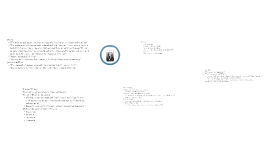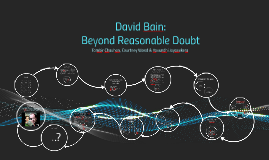Alexander Bain
Transcript: WHO: Lived 1818-1903 Educated in Aberdeen, Scotland Studied at Marischal College Chair of moral philosophy at Marischal College (1841-1843) Good friend of John Stuart Mill WORKS: "The Senses of the Intellect" (1855) "The Emotions and the Will" (1859) proposed that traditional psychology could be expressed with reference to the laws of association both physiological and psychological processes were linked introduced a new classification of the mind: as consciousness, thought and action "English Compostion and Rhetoric" (1866) ERA THEMES: Development of instruction in composition Transition of speaking to writing Instruction in technical subjects and vernacular Vernacular= shift in language instruction toward grammar and mordern literature, and away from Latin and rhetoric Writing > Speaking Used as a pedagogical tool and practical expression of knowledge Analysis of style and usage emphasizing economy and recommending use of images for effect Personal Themes: Treat psychology in relation to physiology (works) Theory of Written composition adapting of associationism, and physchological pyschology theories to identify specific mental operations (descrimination, retentiveness, and agreement) Brings theories together through contrast, contiguity, and similarity Modes of discourse for future textbooks description narration exposition persuasion Quotes: "The most essential nature of a sentient being, which is to move to pleasure and from pain" "The arguments for the two substances [mind and body] have, we believe, entirely lost their validity; they are no longer compatible with ascertained science and clear thinking. The one substance, with two sets of properties, two sides, the physical and the mental—a double-faced unity—would appear to comply with all the exigencies of the case" "Instinct ins untaught abilility" "Superior intellect is a large development of the faculty of association by similarity." Quotes from Work: "The command of language is a grand total, resulting from the practice of life" "In speaking there are three prinicpal ends- to inform, to persuade, and please ALEXANDER BAIN

















